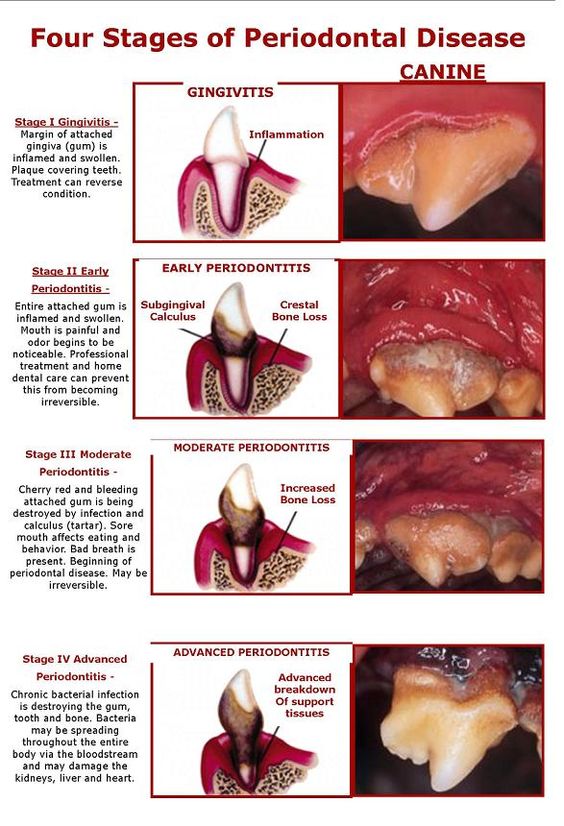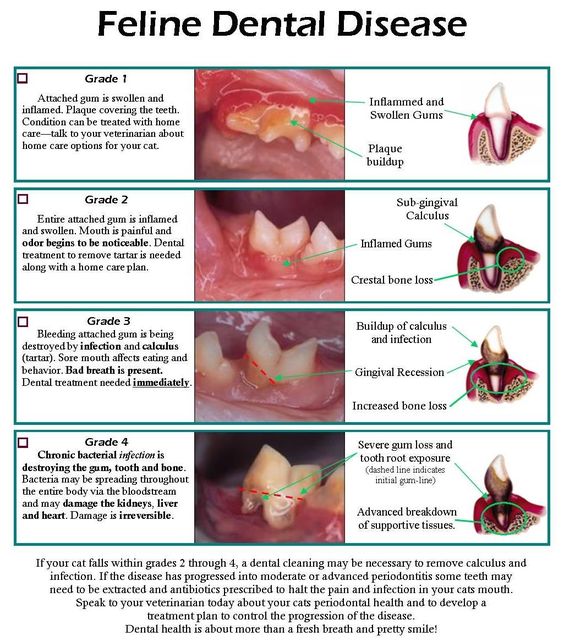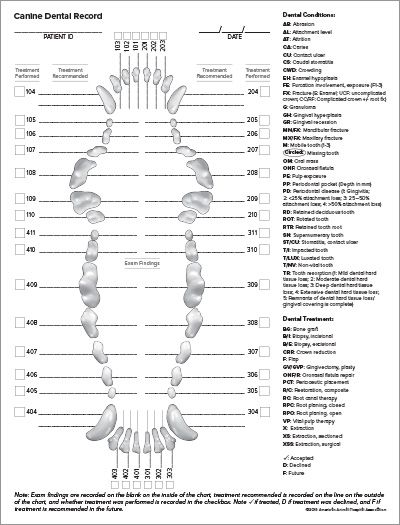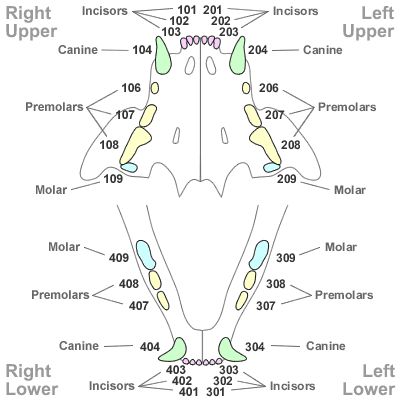Even when we brush our own teeth every day and visit the dentist for regular check ups we still need dental work. Imagine NEVER brushing your teeth and never visiting the dental surgery. How bad would your teeth be? This is the sort of picture your vet has to deal with. Our cats and dogs do not sit still in the dentist chair so anaesthesia is required for any dental work.

Dental disease is a progressive process, worsening over time. The first symptoms can be bad breath and discolouration. Once bacteria get involved then gum recession, tooth loss and bacterial spread to distant sites like heart valves and the kidneys become an issue. Heart disease and kidney disease can be caused by bad gums and teeth!

Pre-operative advice
Dental work in our pets requires that they are under a general anaesthetic. We will need your pet to have an empty stomach the morning of the procedure. So no food from 7pm the night before. Water should be removed in the morning.
Ideally make sure they have a wee and a poo prior to admittance at the surgery. Your pet will be intubated in order to protect the airway as a lot of water is used in the cleaning and any drilling process.
Post-operative advice
Your pet may feel a little groggy after the procedure, as the dental can take a couple of hours, but we are happy for you to offer food as soon as you get home. Some bleeding from the mouth if extractions were required is normal.,
Severe dentals may required post operative antibiotics and pain relief. Initially given by injection on the day of the dental. Top up doses may be required at home. Stitches may even be required – these will be dissolvable.
Dental Charts
Ever wondered how many teeth a cat or dog has?
Canine

Feline

